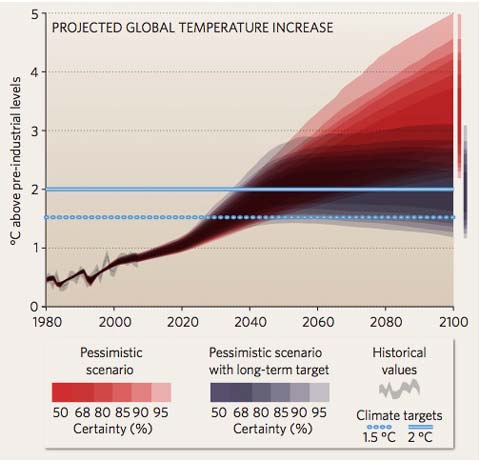 Click on the picture, and then listen to Marvellous Year, the title track of Don McGlashan’s recent album. It’s a fitting soundtrack to the end of 2009 and the beginning of 2010. If what you’re looking for is a roundup of 2009’s climate-related news, I can do no better than offer you Nature’s effort — via Olive at Climate Feedback.
Click on the picture, and then listen to Marvellous Year, the title track of Don McGlashan’s recent album. It’s a fitting soundtrack to the end of 2009 and the beginning of 2010. If what you’re looking for is a roundup of 2009’s climate-related news, I can do no better than offer you Nature’s effort — via Olive at Climate Feedback.
At Hot Topic, 2009 was interesting, in the sense of the Chinese curse. We enter 2010 with much more traffic than a year ago — helped along by the arrival of Scrotum and Monckton (1, 2, 3), a book review (or two), and the occasional robust dismissal of crank tripe. We’ve joined Sciblogs, New Zealand’s very own science blog network, Hot Topic (the book) was shortlisted for the Royal Society of NZ’s first science book prize, and the NZ media have occasionally availed themselves of my views on climate issues. A major part of this year’s progress has undoubtedly been due to the contribution made by Bryan Walker. Since joining HT as my co-blogger late last year, he’s contributed 119 posts, and built up a remarkable corpus of climate book reviews. His passion for the subject and patience with the more intractable commenters has been a lesson in itself.
A few more details: at the end of December last year, we were averaging about 5,000 unique visitors per month. Over the last couple of months, that’s risen to 17,000 per month — small beer in terms of the big climate blogs, but not bad in NZ terms. Over the last 2 months, Woopra tells me that 43% of visitors came from NZ, accounting for 60% of pageloads (mainly because most commenters are from NZ). The US is in second place (22% of visitors/14% of pageloads), Australia third (8.5%/9.5%), the UK fourth (7%/5%) and Canada fifth (5%/4.5%). We had visitors from 133 countries. The top ten regular readers are Carol Stewart, Rob Taylor, Laurence, Andrew W, Dappledwater, Le Chat Noir, R2D2, scaddenp, CTG and Macro. The top three each made more than 350 visits over the two months — remarkable diligence! I haven’t counted up the comments to see who was the most prolific, but I would guess that Rob and R2 would be up there, probably arguing with each other…
And for 2010? More of the same, only better. With luck, the world may finally get down to serious action on emissions. Fingers crossed, and happy New Year.
Like this:
Like Loading...
 So it ended, as have most of the recent UN conferences on climate change, with a statement of platitudes and good intentions but nothing in the way of firm commitments to action. George Monbiot called the conference text 283 paragraphs of fluff, The Economist called the outcome “a limp agreement” and “a poor result for a summit billed by some as a “once in a generation” chance to save the planet from its intolerable burden.” Despite warnings of ecological tipping points looming, and the world’s top scientific organisations urging action on population and consumption, the leaders of the world (or at least, the ones who could be bothered to turn up) managed only to boot the ball downfield about as effectively as an English footballer in a penalty shoot out. It was all just too difficult. So they left it for another day — perhaps another generation — to sort out.
So it ended, as have most of the recent UN conferences on climate change, with a statement of platitudes and good intentions but nothing in the way of firm commitments to action. George Monbiot called the conference text 283 paragraphs of fluff, The Economist called the outcome “a limp agreement” and “a poor result for a summit billed by some as a “once in a generation” chance to save the planet from its intolerable burden.” Despite warnings of ecological tipping points looming, and the world’s top scientific organisations urging action on population and consumption, the leaders of the world (or at least, the ones who could be bothered to turn up) managed only to boot the ball downfield about as effectively as an English footballer in a penalty shoot out. It was all just too difficult. So they left it for another day — perhaps another generation — to sort out.

